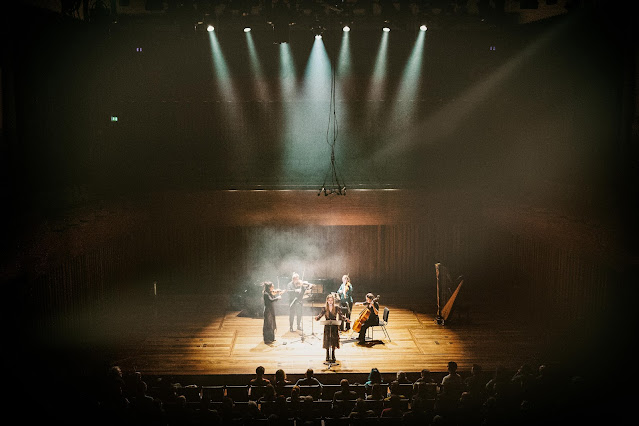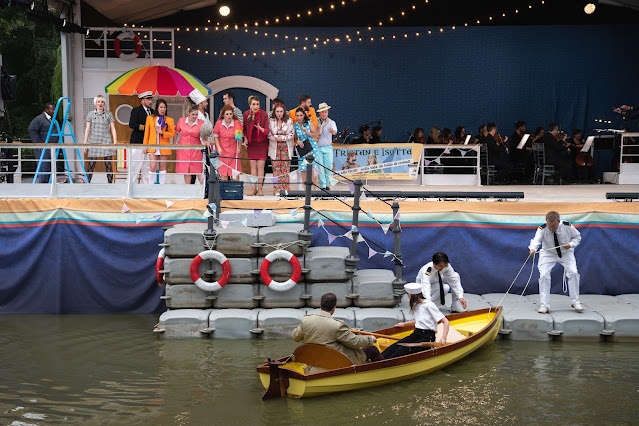.jpg) |
| 'April' from the manuscript of Fanny Hensel's Das Jahr (illustration by Wilhelm Hensel) |
Though we might wish it otherwise, works by historical women composers often cleave to certain genres, often related to the fact that women were not encouraged to publish music and wrote for more domestic performance. There is also the issue of confidence in approach to larger-scale forms. This weekend (21 April 2024), for instance, the Engegård Quartet will be playing Fanny Hensel's Quartet in E flat at Conway Hall [see website for details, including my pre-concert talk]. She only wrote one mature quartet, it had one private performance after which her brother Felix took exception to her rather free approach to form and she never wrote another one.
This means that ensembles that rely on historical composers must draw on a relatively small pool of works in a particular genre or attempt to widen the pool by adding works by unknown composers. This can be a slow process, and a tricky one. For historical reasons the number of, say, piano concertos by 19th century women composers is relatively small because, let's face it, who is going to write a piano concerto unless there is the possibility of getting it performed.
The Orchestra of the Age of Enlightenment (OAE) has taken a leap sideways when it comes to expanding the repertoire. Focusing on Fanny Hensel's 1841 piano cycle, Das Jahr, the OAE has commissioned four contemporary women composers to write works inspired by the cycle. Fanny Hensel described Das Jahr as "small work that is giving me much fun", so the OAE is having the complete cycle played on fortepiano by Olga Pashchenko and has then commissioned Roxanna Panufnik, Electra Perivolaris, Freya Waley-Cohen and Errollyn Wallen to respond to movements from the work, writing for an orchestra of the period.
Das Jahr was something of a family project. Fanny Hensel wrote 13 pieces, one for each month and a prelude, each prefaced by a poetical quote and a specially created illustration by her husband, the artist Wilhelm Hensel. Electra Perivolaris will take 'March' as her starting point, followed by a contribution inspired by 'April' from Errollyn Wallen. Freya Waley-Cohen's commission will draw on "her beautiful and elegant June serenade with visitations or memories of the darkly playful February scherzo". Finally, Roxanna Panufnik will compose a piece inspired by the closing movement, 'Nachspiel', which she says "appealed to me with its intense focus on harmony which moves and never really settles until the very end."
 |
| Clockwise from top left: Roxanna Panufnik, Olga Pashchenko, Electra Perivolaris, Fanny Mendelssohn, Errollyn Wallen, Freya Waley-Cohen. |
Further details from the OAE website.


.jpg)


.jpg)
































%20Bill%20Smith_Norwich%20Cathedral.jpg)